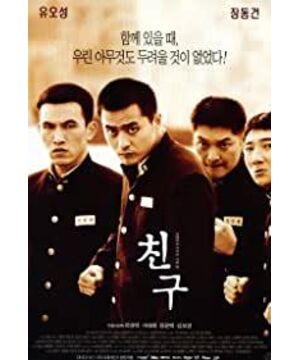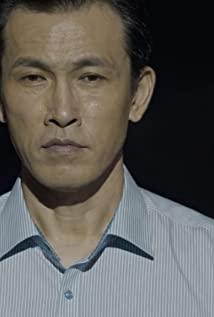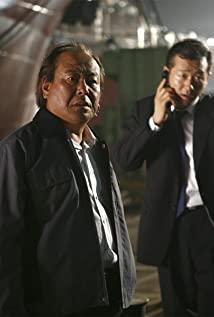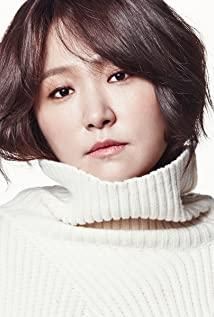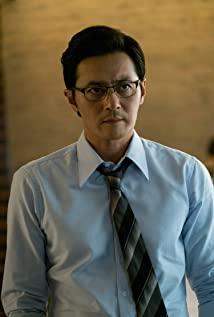I think of another Korean drama, the sister played by Kim Hee Sun has a line: I have been pumping milk harder than others since I was a child, no matter how cold the milk is, I will drink it, so I gave my sister away and let her go to someone else's house to eat well .
I always feel that Koreans have a ruthless spirit in their bones. Even those beautiful love handkerchief dramas contain an almost paranoid obsession. They like to love hard and get terminally ill hard. That kind of spirit from beginning to end is comparable to that of our ancient martyrs.
Sometimes I think Koreans like to go to extremes. My impression of their films is either "revenge" or "redemption".
"Friends" is an early Korean movie I watched. At first it was just because of Zhang Dongjian, but the more I saw it, the more I was attracted by Liu Wuxing, who was not very good-looking. Some film critics once said that "Friends" continued the style of Hong Kong gangster films, but it achieved the artistry and humanization that Liu Weiqiang and others have been pursuing but failed to achieve. I think this is a bit exaggerated, but there is absolutely no way such a movie could be made in Hong Kong.
Hong Kong's gangster films are a bit like a variant of martial arts films. Their theme is "Jianghu", and the affection they tell is "Jianghu Qing". The theme of "Friends" is "Humanity".
To put it more bluntly: the story of Bewitched can only happen to Bewitched, while the story of Friends can happen to almost anyone. The ignorance of sex when he was young, the confrontation with the school, and the conflict with the family... The director pays more attention to these than the unique contradictions of the protagonists' gang identities. The so-called "Jianghu" is just a background that does not steal the show.
The ending of "Friends" is very special. Junshi, played by Liu Wushen, admitted in court that he was the mastermind of Dongshu's killing (in fact, he was not). He said to Aizawa who came to visit him: I feel that I am responsible for Dongshu's death. His so-called "responsibility" is really a very, very, very "broad" responsibility. Just because of guilt, he not only took on trumped-up charges, but also took on responsibilities that we seem to have nothing to do with him, and spent the rest of his life in prison.
If this is a Hong Kong movie, Jun Shi will definitely feel guilty for Dong Shu's death all his life, he may continue to be the eldest brother, or he may retire from the rivers and lakes, but no matter what, he will avenge his brother first. If this is a Japanese movie - which seems unlikely, Japanese gangster movies seem to inherit the Bushido spirit and emphasize obedience to the organization, and Dong-soo is handled by his organization, then Jun-shik as another As a member of the group, his guilt will be much less - but if Jun-seok is to atone for his sin in the end, he should take a more decisive approach, such as suicide.
Junshi's choice seems to contain a bit of Christian "guilt", and a bit of Buddhist "birth", as if there is a bit of "hardship", but it's not exactly that. This is shown very thoroughly in Kim Ki-duk's "Samaria Girl". Until now, I can't understand it.
After watching the movie, Huihui said: Jang Dong Gun is nothing but handsome. Alas, his appearance is too stealing the spotlight, stealing the character's spotlight.
05.8.11
View more about Friend reviews


